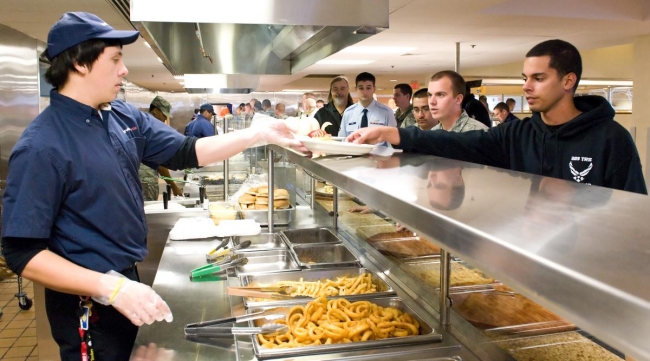You have /5 articles left.
Sign up for a free account or log in.

Roland Balik
Amid virus fears, hundreds of colleges and universities have now moved face-to-face instruction online. Some, like the University of Washington, have decided to keep campuses open and to let students decide if they want to stay.
Other colleges, however, have said in no uncertain terms that students, barring extraordinary circumstances, need to leave campus.
The landscape is changing at an exceptional pace. But for now, the fate of support staff members at these institutions remains unclear. Many office workers are able to take their jobs online and work remotely. But how food service workers, custodians and groundskeepers will fare without meals to serve, wastebaskets to empty or prospective students to impress has yet to be figured out in many places.
The possibilities could range from retaining full employment to reduced hours to layoffs or unpaid furlough.
At Bucknell University, the administration told students they needed to leave by March 17, though they can petition for an exemption.
In regard to the staff members who provide services to students, "the situation is evolving so quickly that it's really hard to speculate on issues like this at this point," a university spokesperson said via email.
Stanford University has asked students to leave before the spring quarter begins on March 30, if at all possible.
Francisco Preciado, executive director of Service Employees International Union Local 2007, which represents 1,300 workers at Stanford, said Thursday that the union has been in conversation with the administration. What happens next for dining and housing staff depends on how many students decide to stay on campus, he said. While the goal of the university is to keep people working, it has not made any guarantees about layoffs.
The dining and housing departments at the university have discussed absorbing staff members who no longer have work to complete into other units. For example, staff who work in Stanford's cafes or catering enterprises could be absorbed into custodial staff, Preciado said, to keep people working. If they are not able to be absorbed, they may be laid off. Layoffs may be massive if the university decides to shut down all residence and dining enterprises. Those decisions have not been made yet, he said.
Events staff at Stanford, who set up and work the large gatherings that have now been banned by the state, have been guaranteed work for the next few weeks, Preciado said. Beyond that, there have been talks about absorbing those workers into grounds work.
"People are worried with the fact that it's going to affect their livelihood if they get laid off for this extended period of time," he said.
The union has also asked the administration for expanded sick time for employees, but those decisions have also yet to be made.
"Although fewer students will be on campus in the coming weeks, we continue to rely on the vital work of our service employees," a spokesperson for Stanford said via email. "They keep dormitories and other buildings clean and provide food for the students, faculty and staff who remain on campus, as we continue fulfilling our mission to the greatest extent possible."
The University of Massachusetts at Amherst told students that the administration is identifying lab, studio and capstone classes that require face-to-face instruction. Students in those classes will be notified if they can stay on campus. All others should "remain away from campus until further notice," with exceptions for those in extreme circumstances.
A representative from the American Federation of State, County and Municipal Employees Council 93, which represents support staff at Amherst, said Thursday afternoon that he did not know more about the future for those employees than what was on the university's website. Staff will continue working for the time being. The administration is still making further decisions.
Cornell University told students they needed to move out March 28, but they can petition for an exception.
If workers who cannot work remotely must miss hours due to being quarantined, they will be placed on paid leave, the university announced in employee guidance.
Though many operations will remain open, how service staff will be affected currently is less firm.
"It is the case that some direct service operations will change, and I want to assure you that we are working to understand what our needs will be and how we can best support all who work at Cornell," the university said in guidance to employees.
The president of United Auto Workers Local 2300, which represents dining staff at Cornell, said Wednesday that he did not have more information about the future of those members.
Some institutions have told employees that work will continue as usual. Employees at Santa Clara University, who like those at Stanford are represented by SEIU Local 2007, have been told the university will remain open and they will keep working as normal.
San Francisco State University has said the campus will remain open but with reduced services.
"During this time of remote instruction and services, all faculty, staff and student employees will continue to be paid," the university said in an announcement Monday.
Amherst, Boston College, Berklee College of Music, Massachusetts Institute of Technology and Colby College administrations did not respond to requests for comment by Thursday evening.




